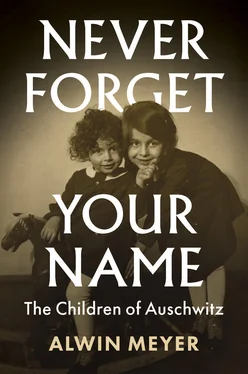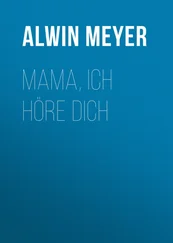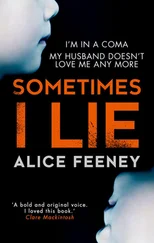The first eight Slovak transports to the East contained only young Jews – over 8,000 children and juveniles. This meant that, by the beginning of April 1942, most of the young Jews were no longer in Slovakia. From March to October 1942, around 58,000 Slovak Jews were deported, particularly to Auschwitz, Majdanek and Treblinka. 8Fewer than 300 were to return from the camps. 9
Nazi Germany demanded RM 500 for each deportee for ‘retraining’. In return, it promised the Slovak government that no Jews would come back and that Germany would not assert any further claims to their assets. 10
The Kornfelds had decided in early 1942 to flee to Hungary. They didn’t want to wait until it was their turn: ‘In Hungary, my parents believed, it was still relatively safe for us Jews.’ Eduard’s 15-year-old brother Heinrich and his 11-year-old sister Mathilde were to be transported over the border by a smuggler, a farmer. The other members of the family intended to follow a few days later. On 7 May 1942, they were ready. Shortly before they were to leave, Simon and Rosa Kornfeld decided that it was better for the girl Mathilde to remain with them. ‘Eduard, you should go with Heinrich.’
‘So I put on one suit and another one on top of it. That’s all. My father blessed us and promised that they would soon follow. No one expected that we would never see each other again. It was a farewell for ever.’
The farmer collected them from their home. ‘My father paid the man. Outside the town, there was a horse-drawn cart.’ This would take them to Vel’ký Meder, which had been annexed by Hungary along with the entire south of Slovakia. 11Eduard’s grandfather and one of his uncles lived there. Eduard and Heinrich were to stay there a few days and then make their way to Budapest. The farmer hurried them along. They had to cross the border before it got light.
‘We followed the railway line in the direction of Vel’ký Meder. From time to time, we placed our ears to the tracks to hear whether a train was coming.’ When it got light, the farmer left them. He said: ‘It’s too dangerous for me now. Just keep going straight on. You’ll come to a village soon. Take the train from there to Vel’ký Meder.’ They had arranged with their father that they would give the farmer a note as a sign when they arrived at their destination. Before the departure, their father had given them a piece of paper torn into two unequal halves and given one half to Eduard’s brother Heinrich. He had kept the other half himself.
If my father was given the piece of paper intact by the farmer, he would know that we had arrived safely in Vel’ký Meder and the man would get the rest of his money.
As the farmer had not brought us to the agreed destination, my brother ripped off a small piece. I don’t know if my mother and father understood the sign. Unfortunately, I never saw them again.
They reached the village between 5 and 6 a.m. An old peasant woman asked the boys: ‘Are you Slovak Jews?’
‘No! No! We’re not from Slovakia!’
‘Listen, I’m a Jew. You don’t need to be afraid. I will just warn you that your Shabbat suits tell everyone right away that you’re not from here. Come with me.’ The woman took the boys home with her. ‘First of all, we gulped down water like crazy.’ They were given something to eat and then slept for a few hours. So that they wouldn’t draw attention to themselves, the woman had advised them to take the train to Vel’ký Meder in the evening. ‘There are so many people, including farmers from other villages. We were simply to mingle with them all.’
The train journey to Vel’ký Meder was without incident. They went to their grandfather’s house. He lived there with their youngest uncle, his wife and their six children aged between 1 and 7 years. The brothers couldn’t stay there because they would all have had to remain in hiding. ‘We were in the country illegally. And besides we were meant to take the train to Budapest, where our parents and sister were to come.’ They took the train to Budapest. Their father’s uncle lived there. Eduard and Heinrich lived with him for the first few weeks. ‘He was very helpful and did his best, like a replacement father.’ But the family was very poor and had lots of children. Besides, ‘his wife didn’t want to hide us’. She was terrified that the boys would be discovered during a raid.
‘We waited impatiently for our parents and sister to arrive. For weeks, even months, we heard nothing from them. We became increasingly worried as the days went by. It was unbearable.’
The brothers were living in terrible conditions. As his own family all lived in a very small apartment, their uncle had rented a room for them with a non-Jewish family. ‘The room had no windows, with just a small opening onto the kitchen. It was so small that there was only space for one bed, no chairs or a table. When we switched on the light, everything was covered in red bugs. They had a very painful bite.’ During the day, Eduard and Heinrich stayed out of the room. As ‘illegals’, they lived in constant fear of a raid. They had told the landlord that they attended ‘some school or other’ in Budapest. They promised repeatedly to register soon with the authorities.
They normally hid in the morning in one of the numerous synagogues in Budapest among the Talmud students there. ‘No one took any notice of us.’
So they wouldn’t starve, they had to think up some scheme every day. Sometimes they bought poppyseed cake, which they couldn’t actually afford. There were many other things Eduard and Heinrich couldn’t have bought either, even if they had had the money, because they needed ration cards: for fat, ersatz coffee, sugar, bread, meat. The same applied to restaurants.
So I stood at the counter, took a piece from the tray and bit into it. While the saleswoman was busy with other customers, I took a second small bite. I held the cake in front of me. When the woman looked away, I quickly stuffed the entire cake in my mouth. And then I took another one, bit a piece off it, and held it as before.
If possible, we repeated this several times. When the saleswoman looked away, we chewed. If she looked in our direction, we held the cake. This only worked when the shop was full.
Another strategy was to buy forged ration cards, which they sold for a profit to Slovak refugees. Eduard Kornfeld remembered all these events every day of his life as if they had just happened. Then he got a nervous disease, probably as a result of undernourishment, and kept on making involuntary movements.
One day the brothers ran into one of Eduard’s former schoolmates, who was also in Budapest illegally. He told them: ‘Your parents and sister were deported.’ This news was ‘like a slap in the face’. ‘We didn’t yet know anything about the gas chambers but I still had a feeling.’ It was ‘terrible – indescribable’.
‘I’m at a loss today to explain how we managed for a whole year’, he once said. ‘But at some point I couldn’t go on anymore. I was completely emaciated and terribly hungry.’ Eduard had discovered in the meantime that refugees under the age of 15 could be legalized if they had relatives in Hungary who would stand surety for them. He knew he would have to keep quiet about the fact that he had been there for over a year, and that he would be interned initially. Without his brother – ‘he was already 15’ – Eduard went to the police and said: ‘I arrived this evening from Slovakia. I’m a Jew.’ He was arrested and sent to an internment camp. The police took his personal details and questioned him:
‘When did you arrive?’’
‘Last night.’
‘Who brought you over?’
‘A farmer.’
‘What did he look like?’
‘I don’t know. It was dark. I didn’t get a good look at his face.’
Читать дальше












